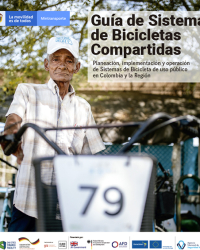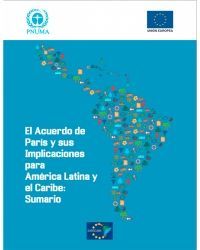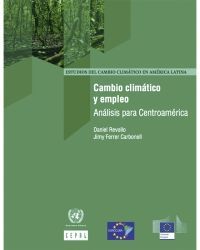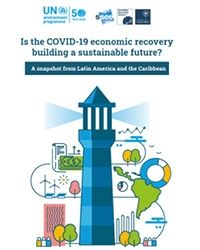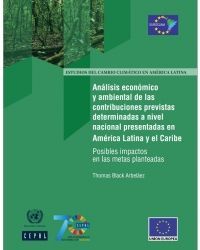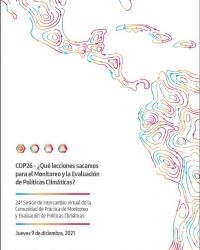Búsqueda por categoría
Más descargados
| Guía Cambio Climático y agricultura familiar con lentes de género 10606 Descargas | 2.49 MB | |
| Informe anual 2021-2022 5813 Descargas | 4.62 MB | |
| Transversalizando la perspectiva de género en proyectos de acción climática: caja de herramientas 3325 Descargas | 6.6 MB |
Zero Carbon 2019 Summary
336 Descargas
This report has been prepared as a follow up to the analysis entitled Zero Carbon Latin America: a pathway for net decarbonization of the regional economy by mid-century, released at COP 21 (November 2015). The new analysis focuses on the advantage, cost and benefits from a coupled transition of the power and transport sectors in the region by 2050.
The UNEP has developed the “Zero Carbon Latin America and the Caribbean: the opportunity, cost and benefits of the coupled decarbonization of the power and transport sectors” report as a follow up to an earlier analysis released at COP 21 (December 2015) on a pathway for full decarbonization of the regional economy in Latin America (UNEP Zero Carbon Latin America, 2015). The report will be followed by an analysis on land use options and oceans as a central anchor for decarbonization strategies in Latin America and the Caribbean, scheduled to be completed by COP 26 (December 2020).
The objective of this report is to illustrate the opportunity, costs and benefits of the coupled decarbonization of the power and transport sectors in the Latin America and the Caribbean (LAC) region by mid-century. The report also presents on the ground examples, from successful policies to business models, which signal a potential coupled decarbonization transition. If escalated, would put the region in a virtuous scenario, raising the ambition of next generation of Nationally Determined Contributions to the Paris Agreement (NDCs).
| Categoría: | Estudios técnicos |
| Tamaño del archivo: | 4.5 MB |
| Hits: | 3457 Hits |
| Descargas: | 336 veces |
| Título: | Zero Carbon 2019 |
| Autor: | Walter Vergara; Jorgen Fenhann; Silvia R. Santos da Silva |
| Año: | 2019 |
| Autor institucional: | ONU Medio Ambiente |
| Formato: | PDF: 50 p. |

